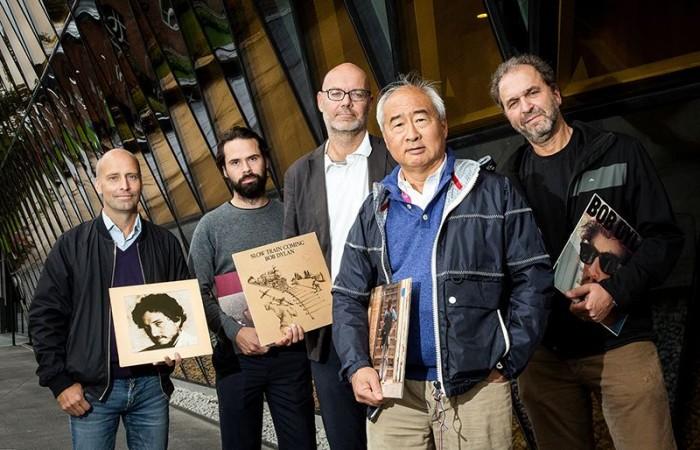
Who would've thought professional scientists would fool thousands who subscribe to their researches for not one or two, but 17 years? The little band of sneaky scientists at Sweden's reputed Karolinska Institute has done just that, all over a friendly bet.
The story begins back in 1997, when Jon Lundberg and Eddie Weitzberg, who are both currently professors at the Department of Physiology and Pharmacology at KI, had written a research paper about flatulence 'Nitric Oxide and Inflammation: The answer is blowing in the wind', that published in Nature Medicine. "Blowing in the Wind" is a song written by Bob Dylan and was featured in his album "The Freewheelin'" in 1963.
In "Here comes the story of the Dylan fans" published in the Karolinska Institute news website, the sneaky band of scientists, which also includes Jonas Frisén, Konstantinos Meletis and Kenneth Chien, finally revealed their ongoing bet of 17 years. According to it, whoever manages to sneak in the most number of Bob Dylan lyrics before going into retirement would be declared the winner and would be treated to a lunch at the Solna restaurant Jöns Jacob.
"We (Lundberg and Weitzberg) both really like Bob Dylan so when we set about writing an article concerning the measurement of nitric oxide gas in both the respiratory tracts and the intestine, with the purpose of detecting inflammation, the title came up and it fitted there perfectly," says Weitzberg.
A few years post the publishing of "Blowing in the Wind", the duo saw an article by Frisén, Professor at the Department of Cell and Molecular Biology, together with Meletis, Research Assistant at the Department of Neuroscience on whether blood cells can change and become nerve cells.
"The title was "Blood on the tracks: A simple twist of fate"; this is the name of the album on the one hand, and a song of Bob Dylan on the other, and the article contained additional Dylan references," points out Weitzberg.
Jon Lundberg and Eddie Weitzberg then succeeded in introducing "The times they are a-changin" into the title in a separate article and, at the same time, sent an email to Frisén, announcing the launch of the internal competition.
Jonas Frisén and a colleague responded to the competition with the article "Eph receptors tangled up in two: Independent control of cell positioning and proliferation" in Cell Cycle the same year, 2010, the title of which is inspired by Bob Dylan's song "Tangled up in blue". In 2011, Lundberg and Weitzberg countered with "Dietary nitrate – a slow train coming" in The Journal of Physiology.
"This article also concluded with a paraphrase of Dylan: 'We know something is happening, but we don't know what it is – Do we, Dr Jones?' where we jokingly addressed a British colleague with the same surname," says Jon Lundberg.
The contest is open for everyone and is alerted about each other's new articles via email, explains Lundberg. They also point out that these Bob Dylan quotes and references are inserted only in articles of lighter tone.
"But it's important that the quote is linked to the scientific content, that it reinforces the message and raises the quality of the article as such, not the reverse," explains Frisén.
Obviously the men of science have tonnes to say about what in Bob Dylan inspires them. While Eddie Weitzberg is of the opinion that Bob Dylan merits a Nobel prize for Literature, Kenneth Chien compares him to a modern, musical Shakespeare. But the researchers also draw parallels between Bob Dylan's music and the world of research.
Funnily enough, another professor of Cardiovascular Research at the Department of Cell and Molecular Biology and the Department of Medicine, Huddinge, Kenneth Chien, has also been quoting Bob Dylan, but – until very recently – was completely unaware of the articles of the others.

















